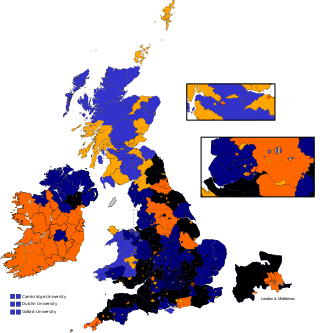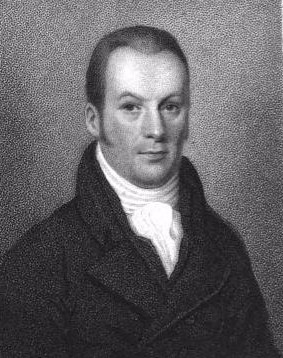Related Research Articles
Arthur Brooke was an English poet who wrote and created various works including The Tragical History of Romeus and Juliet (1562), considered to be William Shakespeare's chief source for his tragedy Romeo and Juliet.

James Gomer Berry, 1st Viscount Kemsley, GBE was a Welsh colliery owner and newspaper publisher.
The Morning Star was a radical pro-peace London daily newspaper started by Richard Cobden and John Bright in March 1856. It had substantial support from Joseph Sturge.
Scaitcliffe was a prep school for boys aged 6–13 in Egham, Surrey. Founded in 1896, it was both a boarding and day school. After merging with Virginia Water Prep School in 1996, the school is now co-educational and known as Bishopsgate School. The school is located in a small village near Egham called Englefield Green.

South Lancashire, formally called the Southern Division of Lancashire or Lancashire Southern, is a former county constituency of the South Lancashire area in England. It returned two Members of Parliament (MPs) to the British House of Commons from 1832 to 1861, and then from a very narrow reform of that year, three until it was further split in 1868.

Sir Arthur Beverley Baxter, FRSL was a journalist and politician. Born in Toronto, Canada, he worked in the United Kingdom for the Daily Express and as a theatre critic for the London Evening Standard and was a Member of Parliament (MP) for the Conservative Party from 1935 to his death.

The Lieutenant of the Tower of London serves directly under the Constable of the Tower. The office has been appointed at least since the 13th century. There were formerly many privileges, immunities and perquisites attached to the office. Like the Constable, the Lieutenant was usually appointed by letters patent, either for life or during the King's pleasure.
John Howard Nodal (1831–1909) was an English journalist, linguistic and writer on dialect.

The British Muslim Heritage Centre, formerly the GMB National College, College Road, Whalley Range, Manchester, England, is an early Gothic Revival building. The centre was designated a Grade II* listed building on 3 October 1974.
English county histories, in other words historical and topographical works concerned with individual ancient counties of England, were produced by antiquarians from the late 16th century onwards. The content was variable: most focused on recording the ownership of estates and the descent of lordships of manors, thus the genealogies of county families, heraldry and other antiquarian material. In the introduction to one typical early work of this style, The Antiquities of Warwickshire published in 1656, the author William Dugdale writes:
I offer unto you my noble countriemen, as the most proper persons to whom it can be presented wherein you will see very much of your worthy ancestors, to whose memory I have erected it as a monumentall pillar and to shew in what honour they lived in those flourishing ages past. In this kind, or not much different, have divers persons in forrein parts very learnedly written; some whereof I have noted in my preface: and I could wish that there were more that would adventure in the like manner for the rest of the counties of this nation, considering how acceptable those are, which others have already performed
Manchester Evening Chronicle was a newspaper established by Sir Edward Hulton, a Manchester City chairman, a newspaper proprietor and a racehorse owner. It started publication in 1897, was renamed Evening Chronicle in 1914 but stayed in Manchester. It continued publication under various ownerships until 1963, when it was merged with the more successful Manchester Evening News and discontinued publication.
Archibald Prentice (1792–1857) was a Scottish journalist, known as a radical reformer and temperance campaigner.
The Manchester Courier was a daily newspaper founded in Manchester, England, by Thomas Sowler; the first edition was published on 1 January 1825. Alaric Alexander Watts was the paper's first editor, but remained in the position for only a year.
The Glasgow Argus was a Scottish newspaper, published biweekly from 1833 to 1847. It took a reforming editorial line, supporting abolitionism and opposing the Corn Laws. The Argus was perceived as the paper of the supporters of the Glasgow merchant and politician James Oswald.

William Langton was an English banker in Manchester, known also for antiquarian and philanthropic interests.
Frederick Knight Hunt (1814–1854) was an English journalist and author, known for The Fourth Estate, a history of journalism.

William Roby (1766–1830) was an English Congregational minister.

Taxes on knowledge was a slogan defining an extended British campaign against duties and taxes on newspapers, their advertising content, and the paper they were printed on. The paper tax was early identified as an issue: "A tax upon Paper, is a tax upon Knowledge" is a saying attributed to Alexander Adam (1741–1809), a Scottish headmaster.
Russell Scott (1801–1880) was an English coal merchant, philanthopist and newspaper proprietor.
References
Notes
- ↑ Nodal based the section on Notes and Queries , to which he contributed regularly. [3]
Citations
- ↑ "Papers Published in England" , The Times , p. 5, 24 February 1868, retrieved 28 March 2013– via Gale
- ↑ Boase, G. C.; rev. Potier, Joanne (2004), "Hadfield, Charles (1821–1884)" , Oxford Dictionary of National Biography (online ed.), Oxford University Press, doi:10.1093/ref:odnb/11853 , retrieved 28 March 2013(Subscription or UK public library membership required.)
- 1 2 Mugglestone, L. C. (2004), "Nodal, John Howard (1831–1909)" , Oxford Dictionary of National Biography (online ed.), Oxford University Press, doi:10.1093/ref:odnb/35246 , retrieved 24 March 2013(Subscription or UK public library membership required.)
- ↑ "Papers of John Cuming Walters relating to Shakespeare". Folger Shakespeare Library Collections. 2011. Archived from the original on 14 September 2024.
- ↑ "Rising Price of Paper" , The Cornishman , p. 4, 10 March 1920, retrieved 24 March 2013– via The British Newspaper Archive
- ↑ Manchester city news, ICON: International Coalition on Newspapers, retrieved 26 March 2013
- ↑ British Library catalogue, British Library, retrieved 26 March 2013